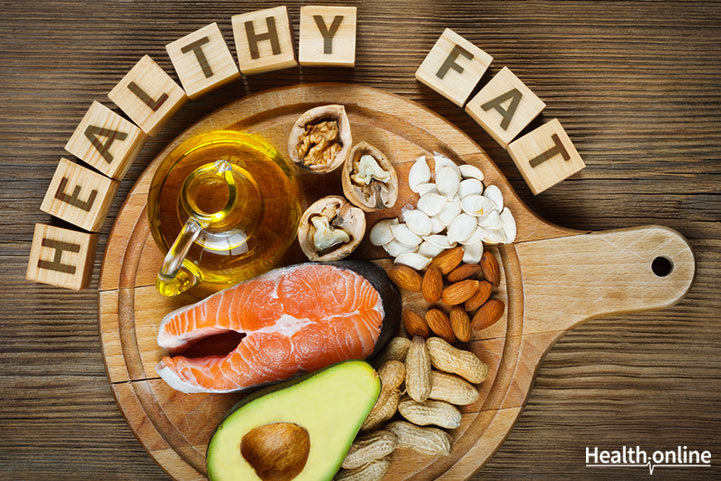
Low-Fat Diet vs. Low-Carbs Diet: What’s Better?
There are many studies and reports published suggesting the type of diet plan one should follow. It has always been a matter of confusion and conflicting conclusions. Some prefer a diet low in carbohydrates and others low in fat. Both diets have their benefits and drawbacks and the overall benefit depends on various factors such as preference, lifestyle, and habits as well. It is necessary to consider such factors before going ahead with any of the two diet plans and for that matter first, you need to have the basic knowledge of these diet plans.
Low-Carb Diet
Carbs or carbohydrate is an organic compound that includes sugar, starch, and, cellulose. There are mainly two types of carbohydrates, simple and complex carbs. Simple carbohydrate is also known as bad carbs because foods rich in the simple carbs cause blood sugar levels to spike and complex carbohydrate is considered to be the good carbs. A diet that restricts the intake of amount and types of carbohydrates is considered to be a low-carbs diet. There is no precise definition of a low-carbs diet, but standard guidelines do exist. Carbs intake between 30 to 100 grams of total calories per day is termed to be a low-carbs diet. A low-carbs diet usually excludes or limits grains, legumes, fruits, bread, sweets, pasta and starchy vegetables.
Low-Fat Diet
As the name suggests, a low-fat diet is one that limits fat content which also includes saturated fat and cholesterol. Fats from food can be divided into saturated, unsaturated and Trans fats. Saturated and trans fat found in meat and dairy products, is considered to be bad fat while unsaturated fat found in nuts, avocados, fish, is considered to be good fat.
Decreasing your daily fat intake can make it easier to cut calories. Experts recommend that restricting fat intake to 35% of your total calories per day can be consider to be a low-fat diet.
Recommended Read: Are Carbs a Bigger Health Foe Than Fats?
Low-fat vs. Low-carbs: An Overview of Benefits
Low-carbs diet: A low carbs diet leads to weight loss and reduces risks of heart diseases. It also decreases the risks of type 2 diabetes and metabolic syndrome.
Low-fat diet: Low- fat diet is considered for the prevention of heart disease. It is always good to balance a low-fat diet with the healthy amount of minerals and vitamins to help in weight loss and balancing cholesterol levels.
Low-fat vs. Low-carbs: Weight Loss
Some researchers have found out that a low-carbs diet is more effective for weight loss and fat loss than a low-fat diet. A low-fat diet can also be considered for weight loss but only for a short period of time. If you want to shed some pounds for good it is better to go with the low-carb diet. However, everybody is unique and every diet works differently for different individuals. It is better to not follow these results blindly and try it by yourself or consult a doctor, to find what works better for you.
Low-fat vs. Low-carbs: Reduction in Heart Disease
As per the studies, because both a low-fat and low-carbs diet can help reduce weight, they consequently can also help in reducing the heart disease risks. Though, low-carbs diet can be slightly more beneficial than low-fat in some cases.
It is found that low-carbs diets lowered the cholesterol levels more than low-fat diets.
For people with diabetes who want to control their blood sugar levels can also choose a low-carbs diet to get slightly better results.
Recommended Read: Good Fats vs Bad Fats
Low-Carbs vs. Low-fat: Bodybuilding
While traditional diet plans may work for an average person, for bodybuilding it is necessary to preserve lean muscles mass as well as maximize fat loss. A low-carbs diet can help you lose weight but it can also make you weak and low in energy. If you workout regularly, eating fewer carbs can cause fatigue and hamper athletic performance. Sticking to a low-fat diet can benefit here.
Conclusion: Which is better for you?
Lifestyle plays an important role to determine what may or may not work for an individual. Your purpose also matters – whether you are looking for a healthy heart and body, or whether you are able to shed some extra pounds and keep it off for good. It is always better to go for a balanced diet that includes plenty of proteins – minerals, vitamins and fiber-rich foods to boost fullness along with regular workout can work wonders.
Keep yourself updated with the latest on Diet and Nutrition . Like us on Facebook and follow us on Twitter for more on Health , Fitness and Health Recipes . Also, check out our Health Tools and try out our health-related Quizzes .




